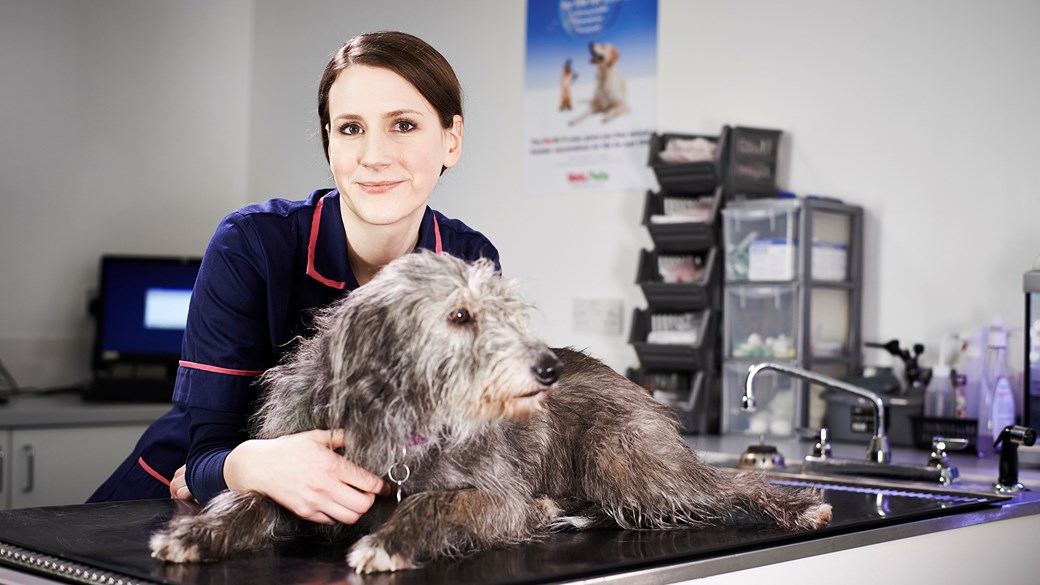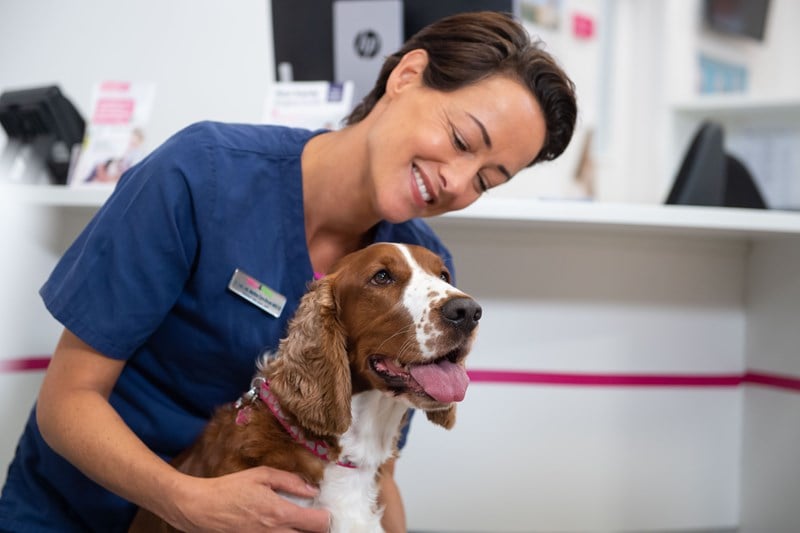
Nurse clinics for pets
Veterinary nurses run clinics to help you keep your pets in top condition and offer services such as checking your pet's weight and dental checks.
Did you know that your pet doesn’t always need to see their vet to receive essential healthcare? Our veterinary nurses also run clinics to help you keep your pets in top condition.
What is a veterinary nurse clinic?
Veterinary nurses are professionals who have gained academic and practical qualifications, in order to be able to practice. Also, like vets, the veterinary nursing profession is governed by the Royal College of Veterinary Surgeons and nurses are required to carry out continued study throughout their career, so that they remain up-to-date with the latest knowledge.
Behind the scenes, nurses carry out a multitude of important jobs, such as monitoring pets under general anaesthesia, taking care of hospitalised patients, running laboratory tests, performing X-rays and assisting in theatre.
But did you know that veterinary nurses also offer face-to-face consultations with you and your pet to help you to manage long-term conditions such as arthritis, to perform minor procedures including nail trims and vaccinations, and to help to keep your pet to a healthy weight?
What types of nurse clinics are available for your pet?
Our surgeries offer a range of nurse clinics. Your local Vets4Pets practice will be happy to let you know about the different nursing services available there to help you take the best care of your pet.
Our typical clinics
Our nurses understand how difficult it can be to manage pets’ weight. If your pet is overweight, they’re at risk from obesity-related diseases, such as diabetes, arthritis and cancer. Our nurses are here to support you and your pet on the journey from ‘at risk’ to ‘slim and healthy’. They can provide a realistic weight-loss plan, help with nutrition, advise on appropriate exercise and activity levels, and we can set up regular monitoring to ensure your pet reaches and maintains their ideal healthy weight.
We recognise that it can feel like an uphill struggle, trying to lose weight, and we know how to support you and your pet with the mental and behavioural aspects of weight management.
Our nurses can help protect your pet from picking up infectious diseases and parasites. They administer second vaccinations, once a vet has examined your pet and given the first vaccination of a primary course. They’ll help with parasite prevention, by providing flea checks and weigh-and-worm consultations. This is great for growing puppies and kittens, whose flea and wormer doses change as they grow.
If it’s difficult for you to administer anti-parasite products, our nurses are happy to help with this too!
Whether your pet needs a nail trim or a tick removed, our nurses are happy to perform a variety of minor procedures that don’t always require a vet. Rest assured, if a nurse spots something they feel needs a vet’s involvement, they’ll let you know.
It’s worth keeping on top of your pet’s oral hygiene. Good dental health improves your pet’s life quality and can save you money in the long run. Our nurses can examine your pet’s mouth to check for signs of gingivitis, periodontal disease, fractures, retained milk teeth and more. If they feel your pet needs dental treatment or more in-depth assessment, they’ll show you the area of concern and arrange for further investigations. They are always happy to support you with home dental care techniques.
Older pets can benefit from early intervention when diseases affecting them as they age, begin to creep in. Our nurses offer clinics for senior pets where they can monitor useful markers, such as blood pressure, urine chemistry, weight, mobility and behaviour. Changes to these parameters can be the first signs of problems such as kidney disease, dementia and arthritis. Nurses work with vets to investigate and address these conditions, enabling older pets to live the best twilight years they can.
Nurses can help you to keep your pet mobile, whether they’ve developed osteoarthritis as they’ve aged or because they’ve had orthopaedic problems or injuries. They can monitor your pet’s mobility, work with you on how to spot signs of pain and advise on diet and activity levels. Nurses and vets work as a team to help keep your pet comfortable and active.
When pets develop chronic (long-term) conditions, they need to have periodic monitoring to ensure they’re receiving appropriate therapy. This is also an opportunity to support you in your home care. One of the chronic conditions nurses can help with is diabetes. Nurses offer support by testing urine glucose levels and taking blood samples for monitoring of glucose and other parameters. They can also assist you with dietary management, and insulin handling and use – especially helpful when you’re just embarking on your journey with a diabetic pet.
If your pet has been in with us for surgery, our nurses are often your first port of call as your pet recovers. They’ll monitor your pet for usually the first week or two following surgery and ensure that all is well. They’re experienced at wound management, dressing changes, bandage management and suture removal once wounds begin to heal.
You’ll also be able to obtain trustworthy advice regarding the care of your pet as they return to full health.
Health Plans to keep your pet healthy
At Vets4Pets we offer a range of Health Plans that make essential routine treatments more affordable. You'll save money on things like annual vaccinations, flea and worm treatment and routine health check-ups.

Read more expert pet advice
From healthy diets to preventing fleas, find free and helpful pet health and training advice to care for your pet.
